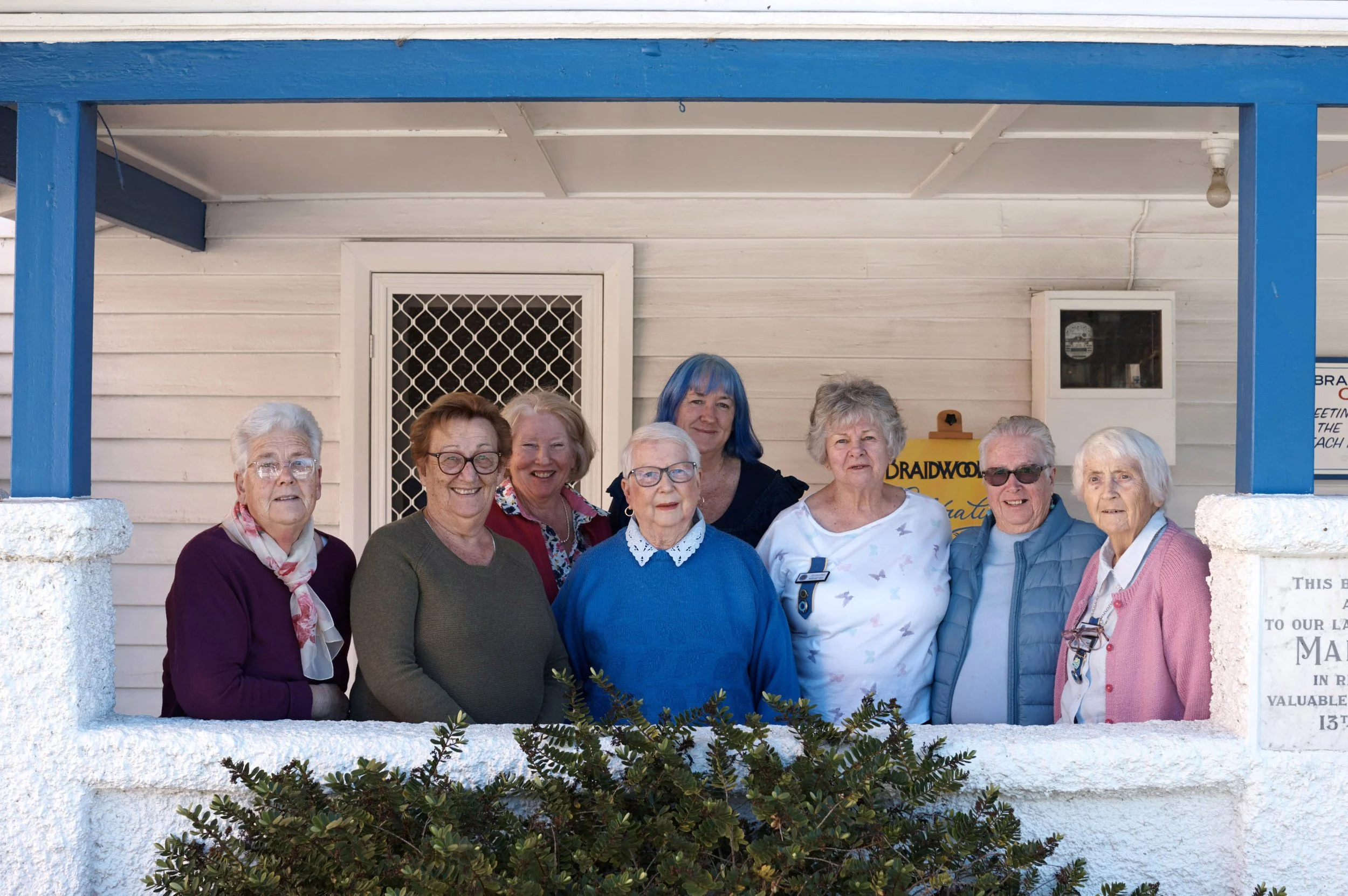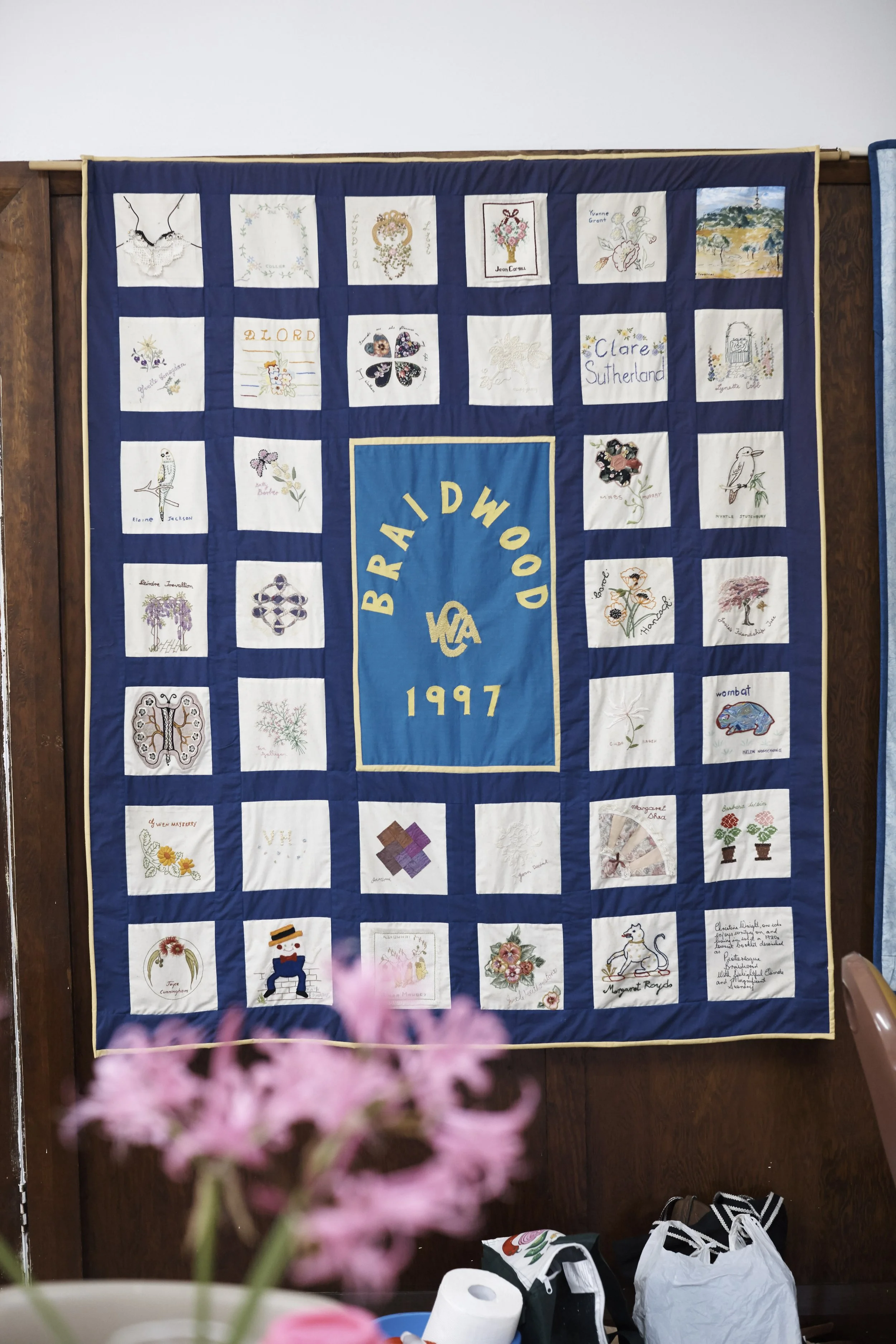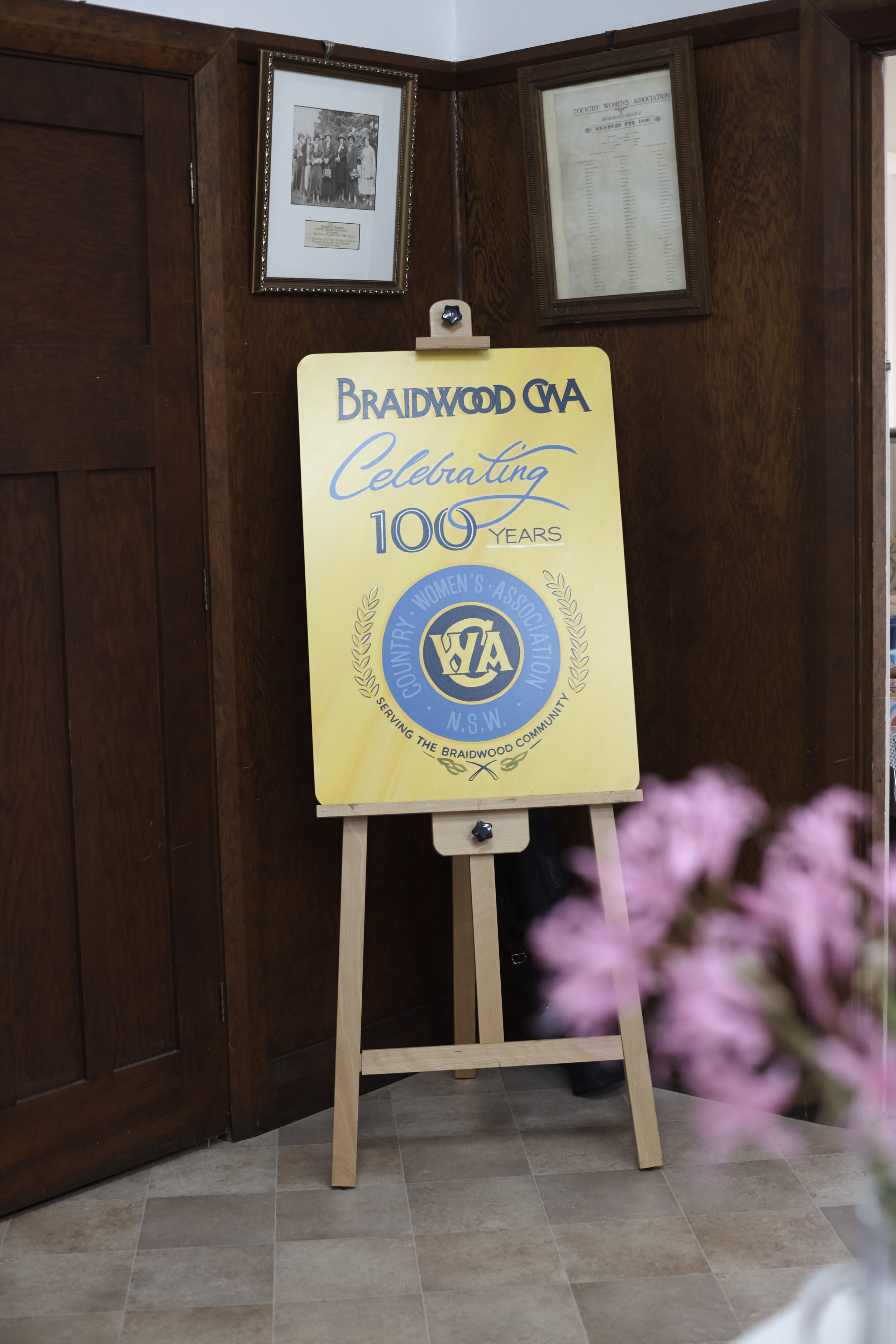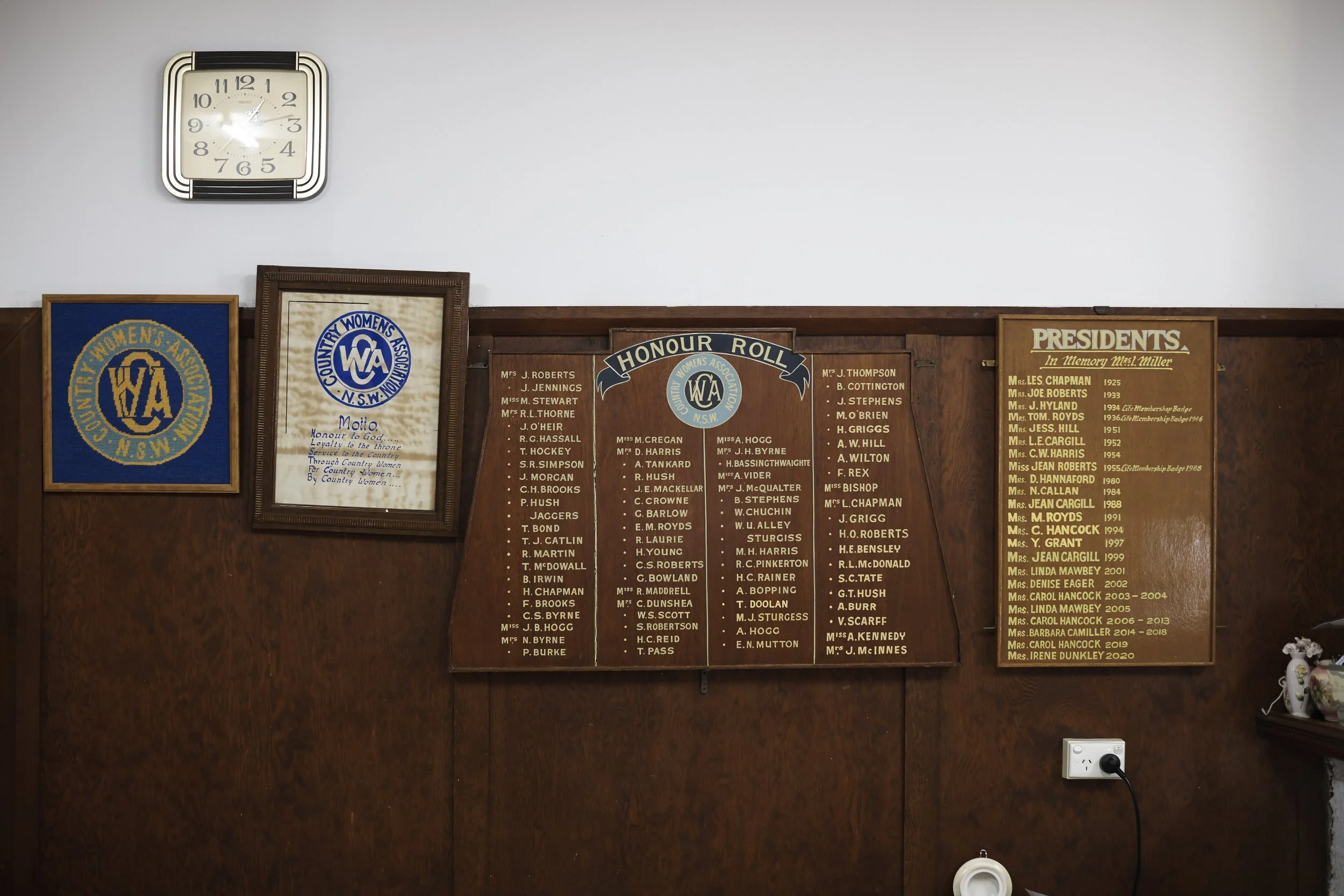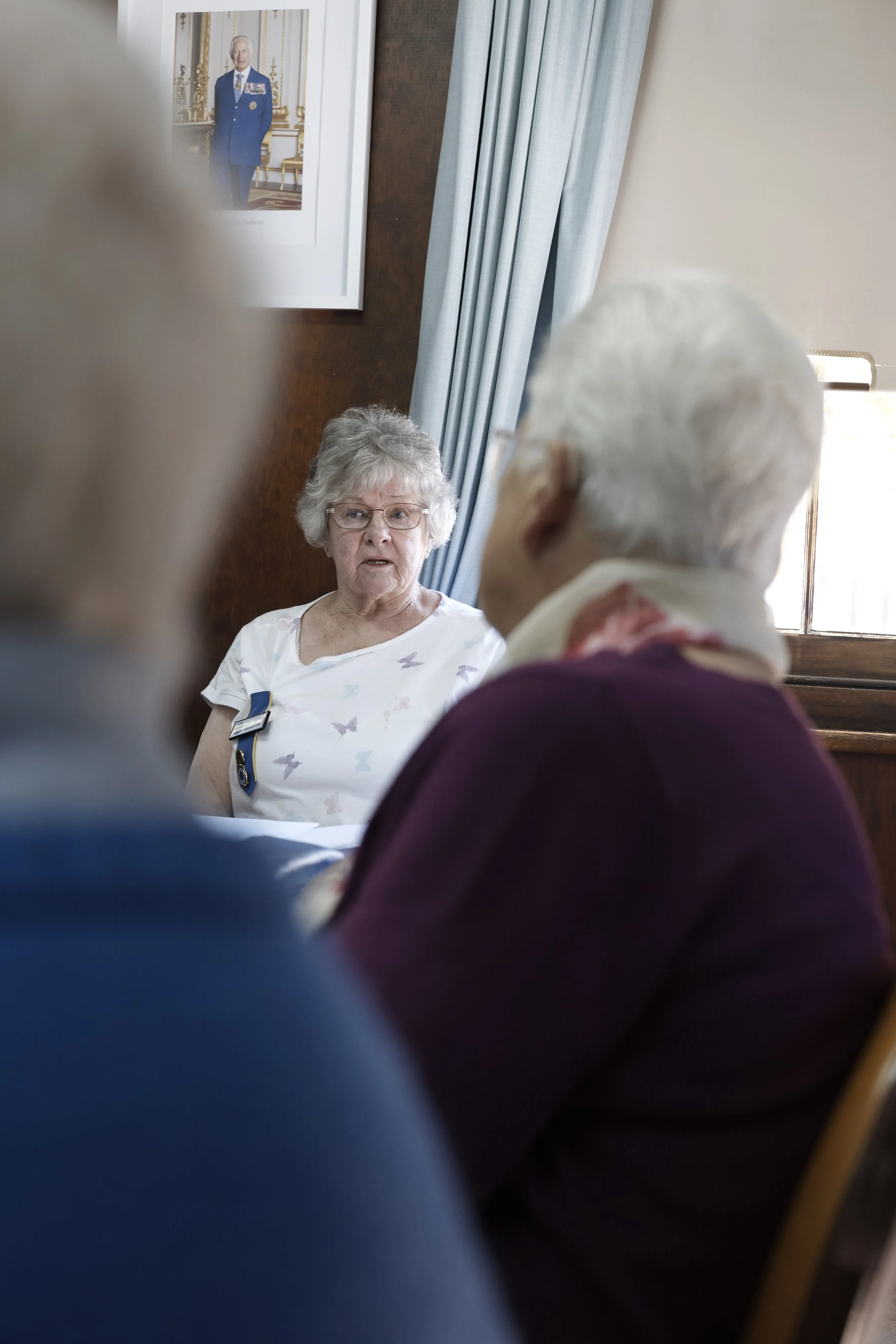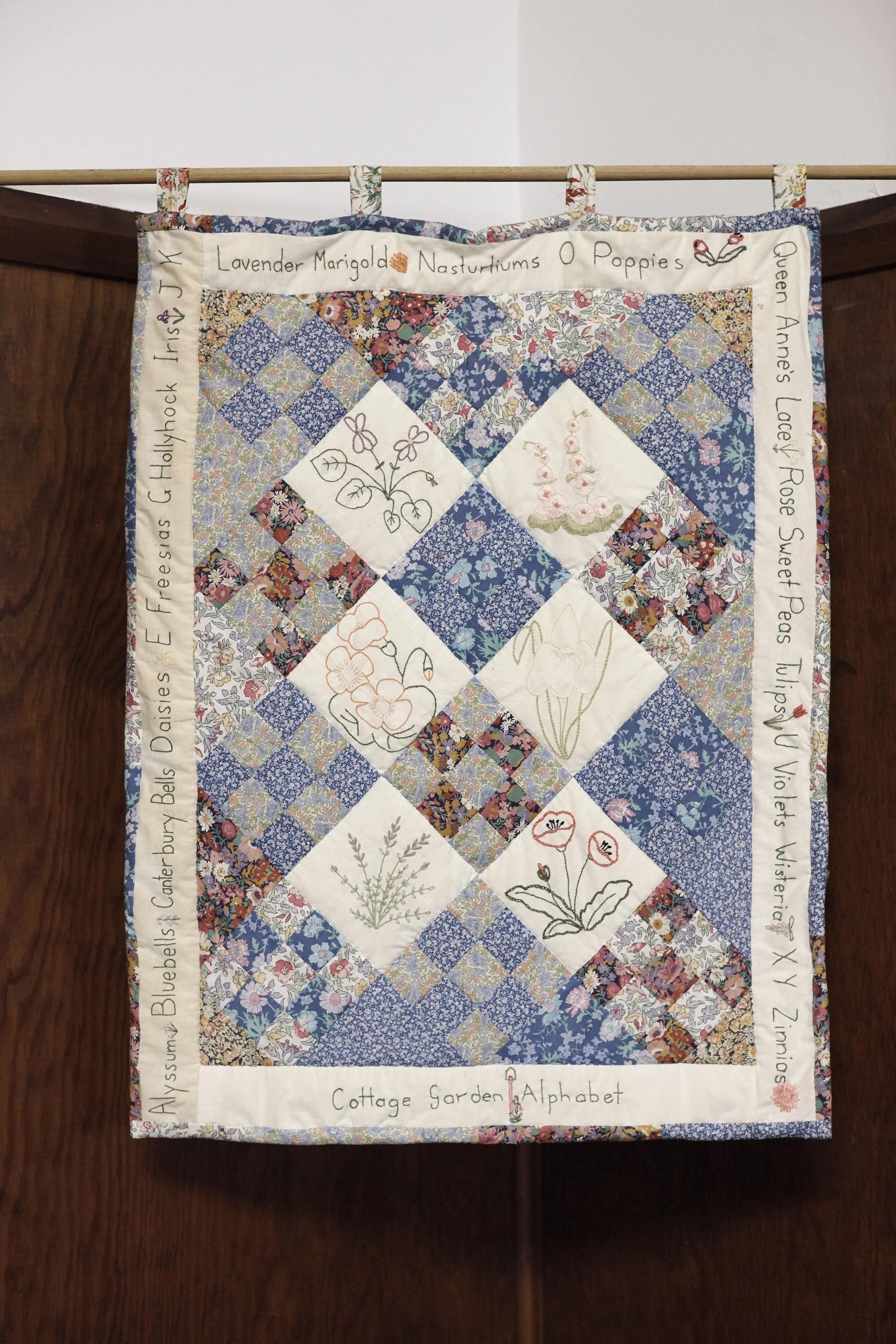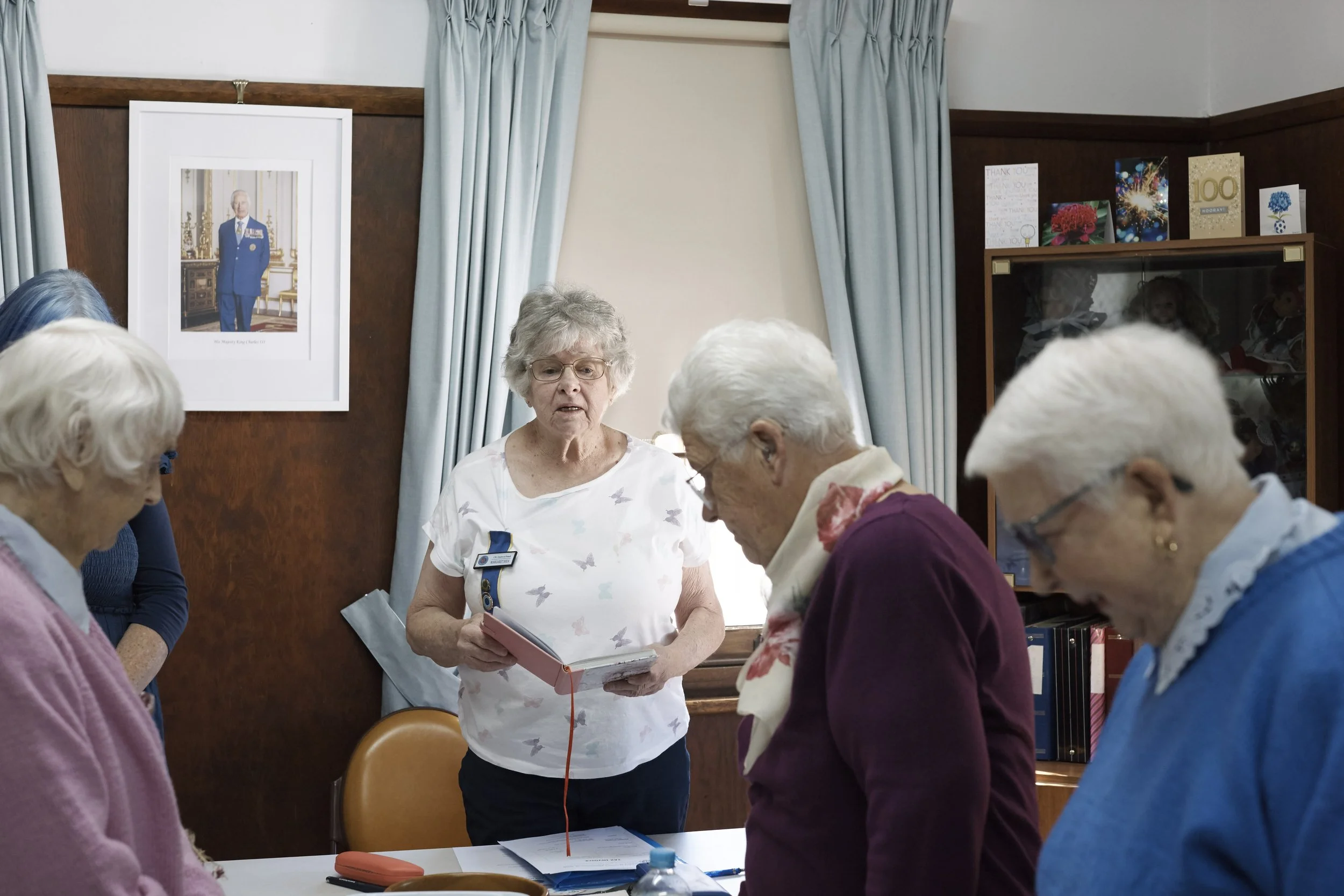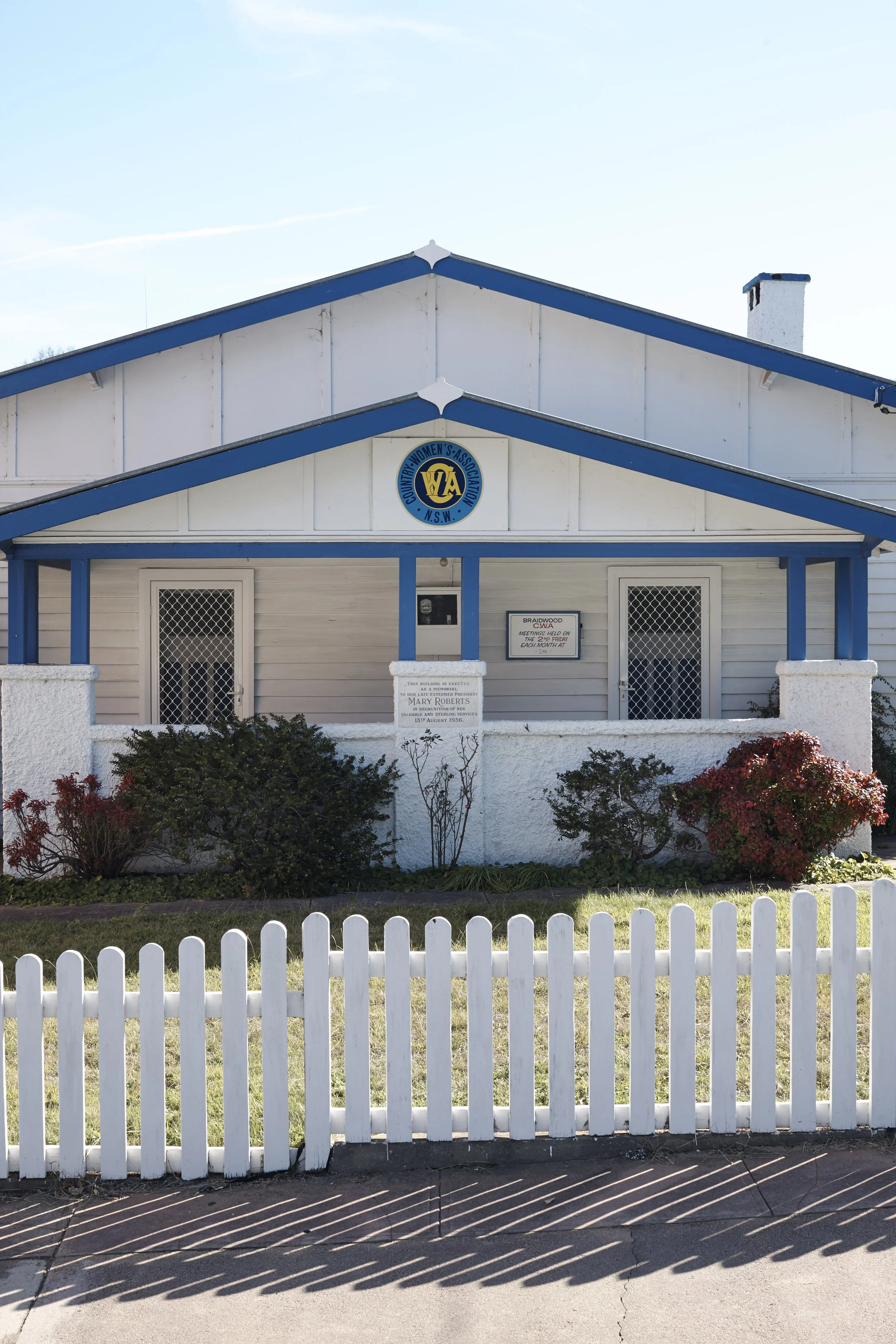Country Women’s Association Braidwood
There’s a point in our conversation at which Mandy O’Brien has to get up and duck out for a bit. Someone’s come to spray the property, and has either forgotten to send a text message checking in, or has unexpectedly gone off the grid. Her farm is 50km out of town, and the black snakes are out in force.
She’s soon back – something on the spraying rig broke, and the worker in question had to run back into town, leaving a message that never got through – but it’s a reminder of the daily interruptions that members of the Country Women’s Association are likely to face.
‘You think you get up in the morning and you're going to do one thing, and something else happens,’ says Mandy. ‘So at any moment you have to drop everything and run.’
Over the course of a hundred years, the Country Women’s Association has seen huge historical changes, but many of the needs of women living regionally and rurally remain the same.
From the beginning, the CWA has agitated for better conditions for women and children both in Australia and internationally, with its reputation opening doors for significant political influence. It supports women through sharing practical advice on things like land cookery and home nursing, as well as providing cultural activities and education.
Though Mandy describes herself as a ‘farmer’s wife’, she is also a fourth-generation teacher, her two daughters making up the fifth. Her position as Agriculture and Environment officer for the Braidwood branch allows her to continue to learn and teach, and encompasses a surprisingly diverse range of topics.
‘Each year we study a ‘foe’, fauna, flora, and a primary product,’ she says. ‘For example, last year’s foe was fire ants, so I did a big PowerPoint presentation on fire ants; and then the flora was a fungi, and so I did a big presentation on fungi. And then I usually end it with some sort of food treats. Food is fantastic for bribery and corruption! [Laughs]
‘The fauna was microbats, which was easy because of Halloween,’ she continues. ‘And the primary product was seaweed. So I did a big thing on seaweed, and then had seaweed biscuits and hand cream and fettucine and all sorts of seaweed products for everyone to taste.’
As well as putting out an agricultural curriculum every year, the CWA selects a country to study – this year, South Korea; last year, France. Mandy has also given talks on the rules and regulations that will govern attempts to reintroduce koalas to the area, and has hosted conversations on proposed legislation about wild dogs.
The group augments these talks with hands-on activities. ‘I had a lady come in and talk to us about weed identification and she was very good,’ Mandy says. ‘Everybody brought in the weeds from their garden to identify, and she gave them all sorts of methods for dealing with them.’
Members also bring in eggs and any produce they have in excess to swap.
‘It's that, “I've got extra, would you like it?” sort of thing,’ says Mandy. ‘And it’s a sharing of ideas, and of listening.’
I know that many people have preconceptions about what the CWA is and does. Was there anything that surprised you coming into this role?
I didn't realise the advocacy that they did. I didn't realise how involved they were with social issues, domestic violence, all those sorts of things that affect so many different people. You know, they were the first ones to put a motion forward for seatbelts in cars in 1966. They've got a motion up at the Canberra conference for a random breath testing, and that the limit be 0.5. They advocated for helmets for cycling and lower speed limits in school zones.
They’ve also protested against coal seam gas, and had a resolution for more government support for alternative fuels and renewable energy. And bans on plastic shopping bags. Governments want the CWA at the table, so they're always invited to give a view, and they're listened to.
What are the Braidwood branch’s priorities at the moment?
A lot of the members feel that fines at the borders for biosecurity breeches aren’t strong enough; that you just get a slap on the wrist. So for $625 that's your fine, but you can bring something in that you can’t eradicate, you know. We’ve seen that with Varroa mite, with the European wasps, we're seeing it with fire ants. So the Braidwood group has passed a resolution that will then go to the regional group, then to the state executive. And if there isn’t already policy around the question, they’ll vote on whether to adopt one and advocate for it at the conference next year in Wagga.
Closer to home, we’ve recently pulled together a resource list for the community, which we have a copy of at the library, so that if you are dealing with something difficult you know where to go, or to suggest that other people go. Some of our members carry a copy in their handbags. And we’re very, very aware of women and homelessness as well. When we’re able to, we try to donate funds to the Braidwood Life Centre.
What else does the Braidwood branch of the CWA take on?
I’m aware that I’ve made it sound like we’re all about Agriculture and Environment! We have an international officer, a cultural officer, and a social issues officer, and we have a land cookery officer as well. We cater a lot of the Braidwood funerals, for a reasonable price, or sometimes just what people can afford. We have handcrafts and play cards on Mondays.
I think our youngest member would be probably 24, and our oldest member turned 90 the other day. There’s one woman who comes along with her daughter, who loved unicorns, and when she broke her leg all the members wrote her letters and collected unicorn things. And recently we had about twenty women teaching one young girl to knit!
Some branches have formed a day group for the older ones, and an evening group for the younger ones. I’m not sure that will happen in Braidwood, but if there was enough interest we would have to. We’re an older group, but I think it's changing and evolving. We’re not just scones and tea anymore.

